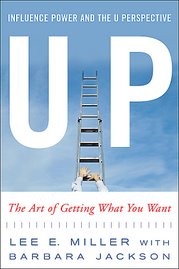You have probably heard of Murphy's Law: "Whatever Can Go Wrong, Will." My corollary to Murphy's Law is: "Expect the unexpected, and be prepared for it." In these uncertain economic times, planning for the unexpected is all the more important.
As a frequent traveler, I am plagued by problems, mostly minor, which are both beyond my control and often unexpected. On a recent trip, for example, I was scheduled to give a telephone interview on drive-time radio. I was staying with a friend, and gave his telephone number to the show's producer. I also gave the producer my cell phone number as a back up.
About five minutes after the interview was supposed to begin, I received a call on my cell phone from the producer saying they had to cancel my spot. The producer told me he had tried several times to call the telephone number I had given him, but each time a woman answered claiming not to know who I was.
Why the producer did not call my cell phone is beyond me. However, when I called my friend's number using my cell phone, sure enough, the phone sitting in front of me did not ring and instead a woman answered. When my friend called the telephone company to find out what was going on, he was told the wires were somehow crossed.
The moral of that story is that I should have called ahead of time to make sure my friend's phone was working properly. Perhaps anticipating that problem might be too much, even for me, to anticipate, so what I really should have done, in addition to giving the producer a back-up number, was to get his direct number, so I could have called when his call failed to come through at the scheduled time. That way I would have been in control of the situation.
What does this have to do with careers? While you cannot know with certainty if, or when, certain challenges will arise during the course of your career, experience suggests certain events are likely to occur at some time during your working life.
Those challenges can have a major effect on your career. You may be laid off. Your company may be taken over. You may find yourself with a new boss. You may unfairly be blamed for something that has gone wrong, through no fault of yours. The key to survive the unexpected is to plan for it. Along with every unexpected challenge that arises, there is opportunity, but only if you are prepared
If you have a critical meeting that you absolutely have to be at on time, drive the route before hand, so you can anticipate and avoid any problems; then leave early anyway.
More important, at some point in your career, you will probably be terminated from a job. Ask "Harry Potter" author J.K. Rowling or New York City Mayor Michael Bloomberg. Both were fired from their jobs before they went on to become enormously successful.
Prepare now for those unexpected events you can anticipate. While you may not know when they will occur you can be fairly certain that they will. Here are some tips to help you plan ahead in case you lose your job:
- Keep your résumé current.
- Have copies of important documents and contact lists stored someplace other than on your office computer or BlackBerry.
- Keep up with trends in your industry.
- Become active in professional associations.
- Attend conferences and take courses to keep your skills, particularly technology, current.
- Continuously build and stay in contact with your network.
- Create an online presence.
- Create a specific job search plan and have it ready.
- Identify people who can serve as references.
- Review your finances.
- Put money away to have in reserve.
Take actions now that will enable you to quickly recover from a potential job loss. If you ever need to put that that job search plan into effect, you will be glad you chose to expect the unexpected and were prepared for it.
A veteran human resources executive, Lee E. Miller is a career coach and the author of "UP: Influence Power and the U Perspective -- The Art of Getting What You Want." He is also the co-founder of YourCareerDoctors.com, a website devoted to career success. Mail questions to Lee@YourCareerDoctors.com.
